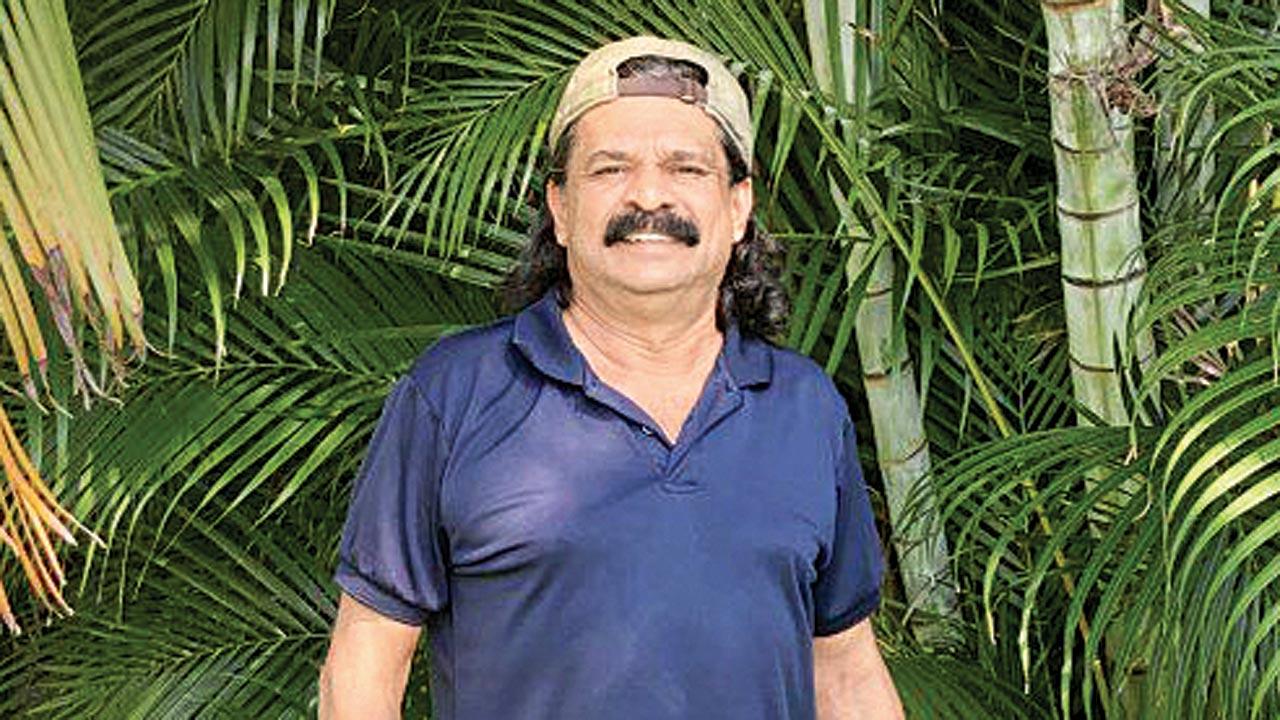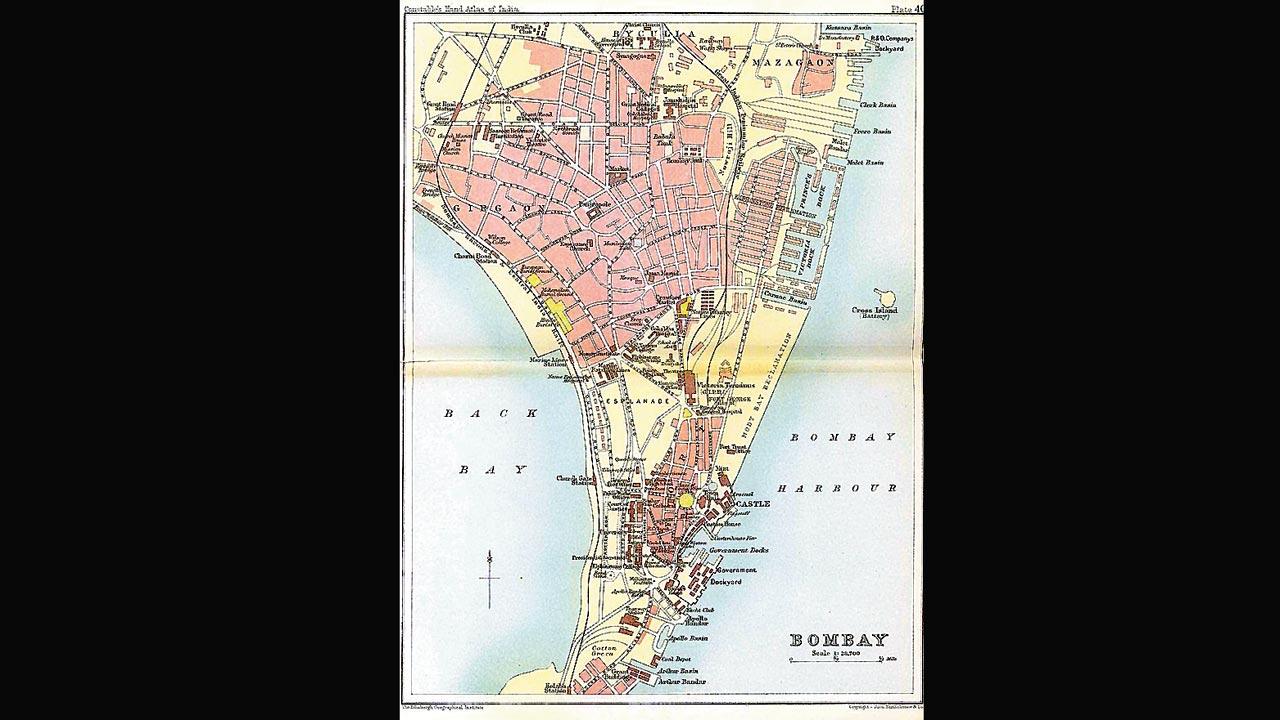Inspired by the story of an English smuggler who thrived in 20th century Bombay, an ex-journalist pens a novel that revisits a story about corruption and debauchery on a forgotten land

Situated 400 metres from Ferry Wharf or Bhau Cha Dhakka, Cross Island is also known as Chhinaal Tekdi, meaning hill of whores. Imaging/Uday Mohite
It was at a bar in South London’s Croydon that ex-Bandra resident and journalist Godfrey Joseph Pereira first heard the story of an unscrupulous English smuggler, and his insane life in Bombay. “This was over a decade ago when I was visiting the UK,” shares Florida-based Pereira over a telephonic interview. “My friend and I were sitting at this local bar, probably discussing my writing and journalism, when this man and his son, who were eavesdropping from the next table, joined us. In Croydon, everyone knows everybody—these guys were acquainted with my friend. We got talking. During the course of that conversation, the man told me that he wanted to show me something. We met the next day at the very same bar, and he showed me letters [written by his father to himself], which completely blew me away. His life [the smuggler’s] was just so fascinating.”
Nothing came of it then. But, several years later, in the summer of 2015, Pereira happened to meet up with this man’s son in New York City. “He handed me a large shopping bag, which contained all those letters, hoping I would do something with it.” They were a gold mine, recounts Pereira, and detailed the tragic story of the young man’s grandfather, which unfolded on Cross Island, an uninhabited stretch of land off the Bombay coast, ending with his incarceration at an asylum in England. These letters became the framework of Pereira’s just released novel, Four and Twenty Blackbirds (Speaking Tiger), which tells the story of Charlie Strongbow, a fictional schizophrenic Englishman, who like the man he had read about in the letters, operated in Bombay during the Partition Era, and was fuelled by an unrealistic dream to set up a smuggling den on Cross Island.
 Godfrey Joseph Pereira
Godfrey Joseph Pereira
Pereira whose first novel Bloodline Bandra (2014) captured the life and times of the tight-knit East Indian community in Pali Village, admits that though he spent his childhood and a decent part of his journalism career in this city, he had never heard of the island.
Situated 400 metres from Ferry Wharf or today’s Bhau Cha Dhakka, Cross Island has been obliterated from the city’s history. Though its history is undocumented, locals are aware of many a folklore that surrounds it. Many still call Cross Island, Chhinaal Tekdi, which when literally translated from Hindi, means hill of whores, says Pereira. There is little written about how the island got its name. One reason could be the Portuguese missionaries, who may have named it after the Christian symbol. Or, just the fact that ships had to cross it to enter the dock area, which lies to its right.
 A Map of Bombay from Maps of Constable’s, 1893, which identifies Cross Island. Pic courtesy/Wikimedia Commons
A Map of Bombay from Maps of Constable’s, 1893, which identifies Cross Island. Pic courtesy/Wikimedia Commons
A major part of the research for this book happened in Mumbai, when Pereira made a trip back home. His friend, Titus Fernandes from Bandra, who worked at the Bombay Docks for 31 years as supervisor, spoke to him about the inner-workings and dealings there. “Titus’ role was instrumental to this novel. He not only took me to Ferry Wharf, and pointed out Cross Island [currently cordoned off], but also gave me a detailed explanation about the modus operandi of the black market network at the docks, including how the pilfering happened and all the paperwork that had to be done. I spent several days with him, taking down notes,” says Pereira, who during his successful journalistic stint had also interviewed the kingpins of Mumbai’s mafiosi, Haji Mastan and Pathan leader Abdul Karim Sher Khan, alias Karim Lala, who ran powerful smuggling syndicates in the 1960s and ’70s. Lala, in fact, started his career at the docks, and finds mention in the novel too. He also dipped into a pool of resources, including books and material, “for historical authenticity and guidance while compiling this novel”.
Charlie Strongbow, the protagonist of Pereira’s novel, is a Bombay-born Englishman working in the docks. With the British set to leave India and the Partition on the anvil, Strongbow, sensing that the “goras” are now an unwanted presence in the country, comes up with a bizarre plan. Instead of returning to England, he decides to move to Cross Island, a “cursed” and “haunted” land where horrible things have happened. Strongbow, along with an English goon called Thommo, an accountant named Willie, a Portuguese temptress called Dona Maria, and 20 British desperadoes, takes possession of the island, functioning in illegal harmony, bound by no rules, with plans to build a black-market trade between Southampton and Bombay. The plot thickens when Detective Desai, a man Strongbow had once destroyed, starts an unrelenting war against the islanders.
Both Strongbow and Desai are men Pereira found in the letters he got hold of in NYC. But, he admits to have taken creative liberties to build upon their characters. The novel, though, is not just about them. A parallel story is that of India’s Independence movement. Pereira trains a critical lens on some of its key architects, Jawaharlal Nehru and Muhammad Ali Jinnah, in particular. He feels that the version of history we are fed is “brown-washed”, only offering a sanitised view of the stakeholders involved in India’s Partition. He writes about the “agnostic” Nehru and his angst towards organised religion that the leader himself described as a “spectacle that filled me with horror”. Of Jinnah, “who liberally indulged in Western habits”, his character Strongbow thinks “a man as far away from Islam as I am from Christianity, is going to be the leader of a Muslim country”. Pereira says he found it fascinating that these two men, despite their contradictions, led the country through one of the bloodiest events in history that divided two religions and one land. There is a wider cast of people, who walk in and out of the novel, and if anything, Pereira hopes to open a can of worms, including Nehru’s inability to control the “savagery” that unfolded in the name of Partition. “We need to know why nobody is talking about this. What are we afraid of? It’s our history, and it’s the truth.”
 Subscribe today by clicking the link and stay updated with the latest news!" Click here!
Subscribe today by clicking the link and stay updated with the latest news!" Click here!










